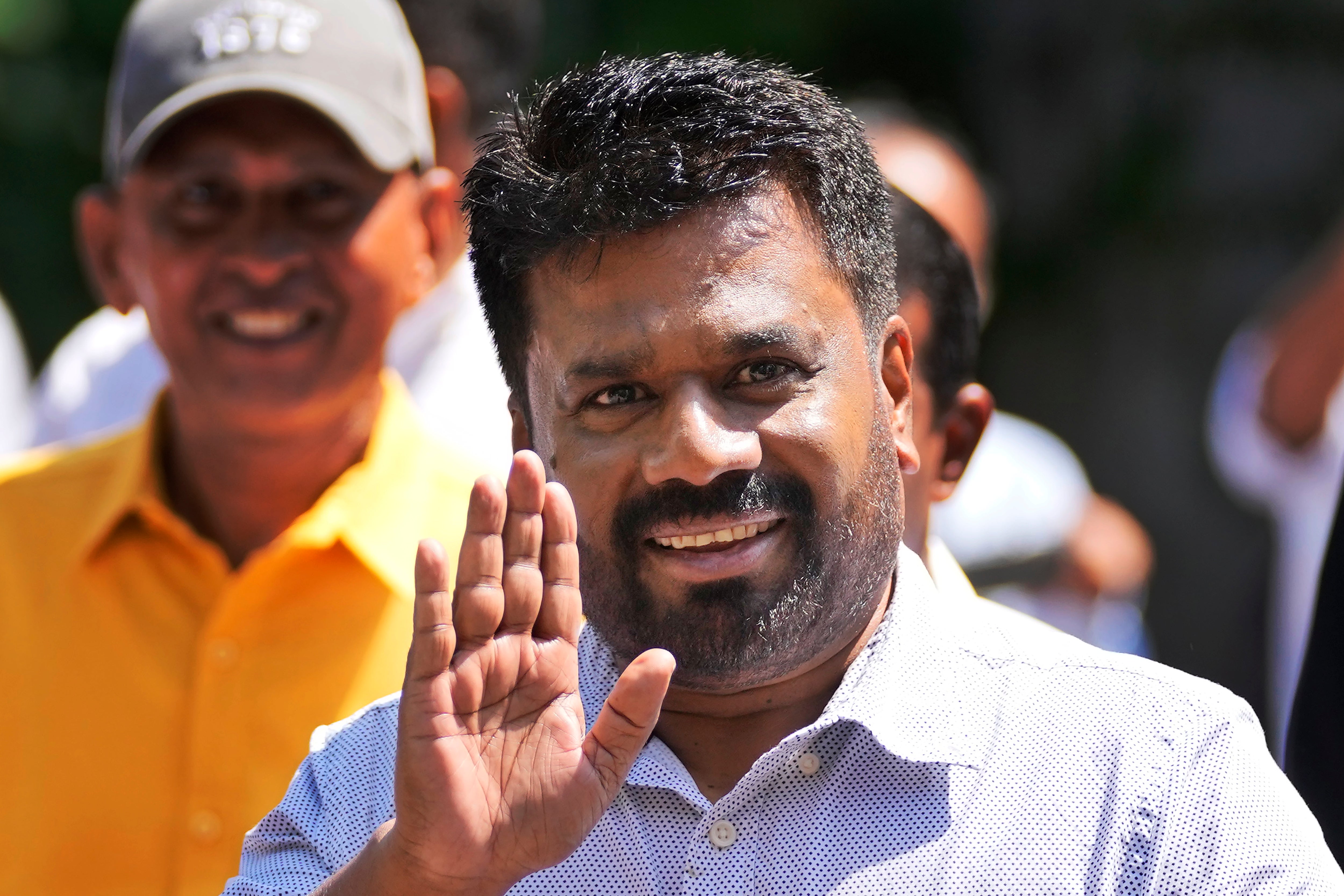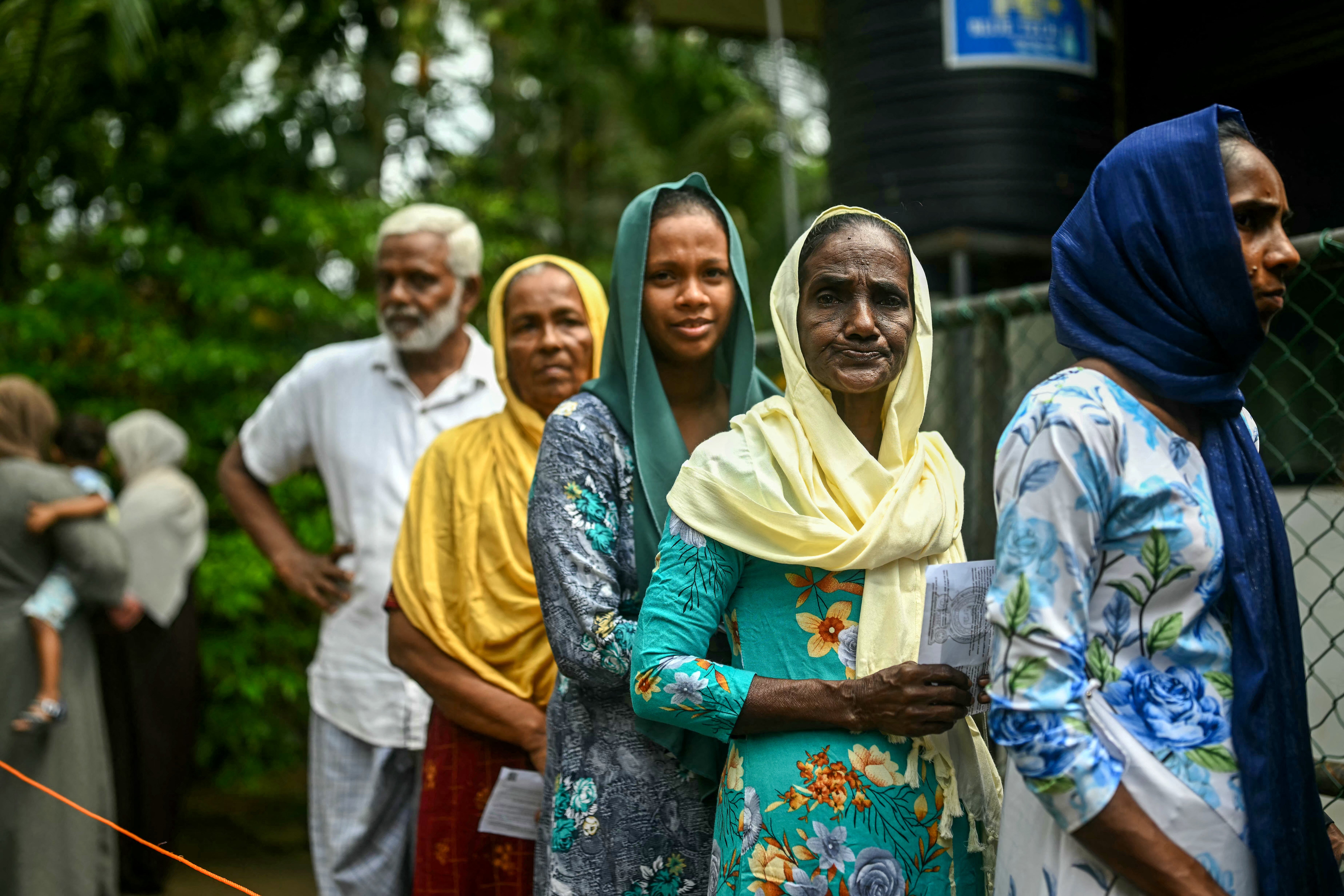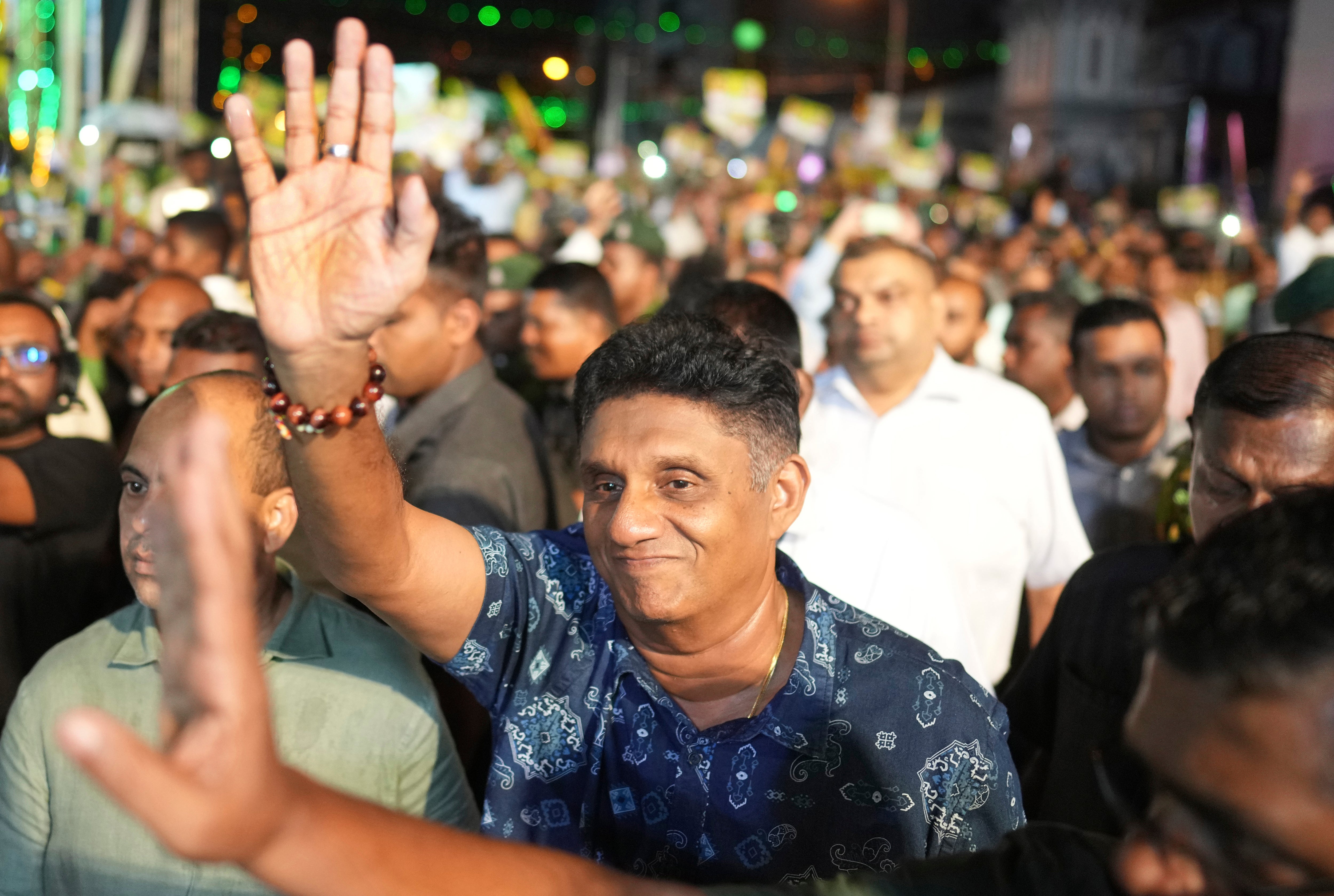Marxist leader Dissanayake becomes Sri Lankan president as voters reject old order
Anura Kumara Dissanayake ran on pro-working-class and anti-elite campaign
Your support helps us to tell the story
From reproductive rights to climate change to Big Tech, The Independent is on the ground when the story is developing. Whether it's investigating the financials of Elon Musk's pro-Trump PAC or producing our latest documentary, 'The A Word', which shines a light on the American women fighting for reproductive rights, we know how important it is to parse out the facts from the messaging.
At such a critical moment in US history, we need reporters on the ground. Your donation allows us to keep sending journalists to speak to both sides of the story.
The Independent is trusted by Americans across the entire political spectrum. And unlike many other quality news outlets, we choose not to lock Americans out of our reporting and analysis with paywalls. We believe quality journalism should be available to everyone, paid for by those who can afford it.
Your support makes all the difference.Marxist Anura Kumara Dissanayake has won Sri Lanka’s presidential election, according to early results, as voters rejected the old political guard that has been widely accused of pushing the country into economic ruin.
Mr Dissanayake secured victory over opposition leader Sajith Premadasa and incumbent liberal president Ranil Wickremesinghe, who took over the country two years ago after its economy hit rock bottom.
Mr Dissanayake received 5,740,179 votes, followed by Mr Premadasa with 4,530,902, Election Commission data showed.
“This achievement is not the result of any single person’s work, but the collective effort of hundreds of thousands of you. Your commitment has brought us this far, and for that, I am deeply grateful. This victory belongs to all of us,” Mr Dissanayake said in a post on X.
Mr Dissanayake leads National People’s Power, a left-wing coalition of civil society groups, professionals, students and Buddhist clergy.

The election, held on Saturday, came amid the worst economic crisis in the country’s history and the resulting political upheaval. Contested by 38 candidates, it was largely a three-way race between Mr Dissanayake, Mr Wickremesinghe and Mr Premadasa.
Mr Dissanayake, 55, took the most votes in the first round of counting, but fell short of clearing the threshold of 50 per cent to win outright. The Election Commission ordered a second round in which preferential votes were counted, and Mr Dissanayake quickly raced into the lead.
Mr Wickremesinghe, who took power in July 2022, was eliminated in the first round after leading Sri Lanka’s fragile economic recovery. This included restructuring Sri Lanka’s debt under an International Monetary Fund (IMF) bailout programme after the country defaulted in 2022.
This is the first time in Sri Lanka’s history that the presidential election is being decided by a second round of counting. The second round is required if no candidate secures an outright majority.

The top two candidates then split the ballots of the eliminated nominees, depending on which of them is listed as the second preference. The second-preference ballots are added to the tallies from the first counting round, and whoever receives the higher number of votes is declared the winner.
Mr Dissanayake received a congratulatory message from outgoing foreign minister Ali Sabry, who said that he respected the mandate given to him by Sri Lankans.
“I extend my sincere congratulations to Mr Dissanayake and his team. Leading a country is no easy task, and I genuinely hope that their leadership brings Sri Lanka the peace, prosperity and stability it so deeply deserves,” he said on X/Twitter, adding that Sri Lankans face “immense” challenges.
Mr Premadasa had not yet conceded defeat by Sunday afternoon.
Around 17 million eligible voters cast their ballots on Saturday, and the final results were expected on Sunday evening.
Police said no major incidents were reported during the voting process, which was held under a countrywide curfew that ended at midday on Sunday.
More than two years after the south Asian island nation fell into a deep economic crisis, millions of its people continue to struggle with high living costs. Unsurprisingly, the economy was the biggest campaign issue.
Sri Lanka’s economic crisis, which was years in the making, stemmed largely from the federal administration’s excessive borrowing for projects without generating enough revenue. A further blow was delivered by the Covid pandemic, and by the government’s push to use scarce foreign reserves to prop up the Sri Lankan rupee, throwing the economy into a tailspin.

At the time of its default, the country faced a foreign and local debt of $83bn (£62bn). Several rounds of restructuring brought it down to around $17bn. In the past week, officials in Colombo said the government had cleared the final hurdle in restructuring the debt by reaching an agreement with private bond holders.
Mr Dissanayake and his rival said during the campaign that they would renegotiate a proposed deal with the IMF to make austerity measures more bearable for the country’s millions of citizens. Mr Wickremesinghe warned that any move to alter the basic agreement could delay the release of the fourth tranche of nearly $3bn needed for economic stability.

Join our commenting forum
Join thought-provoking conversations, follow other Independent readers and see their replies
Comments